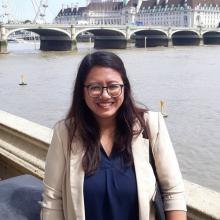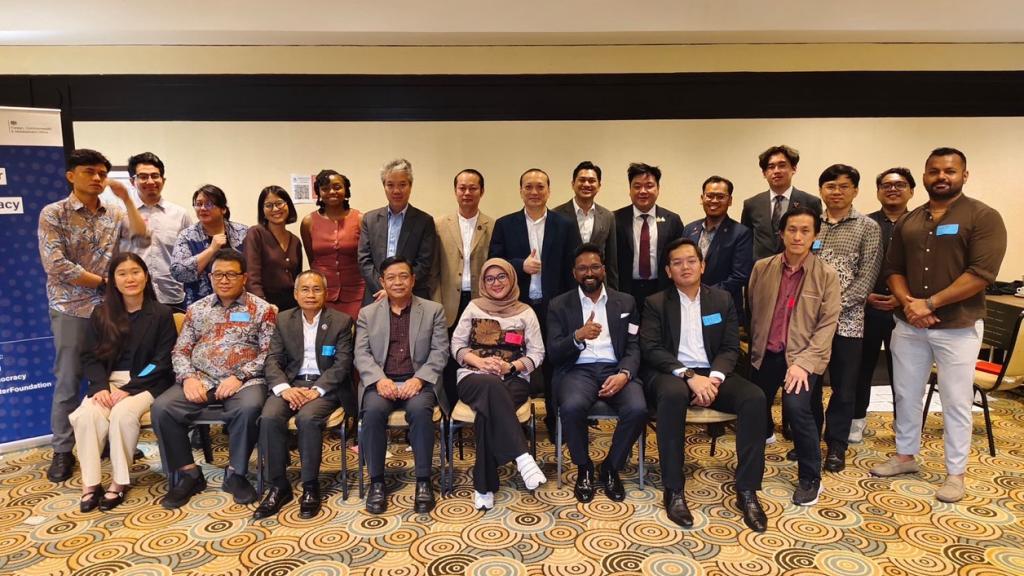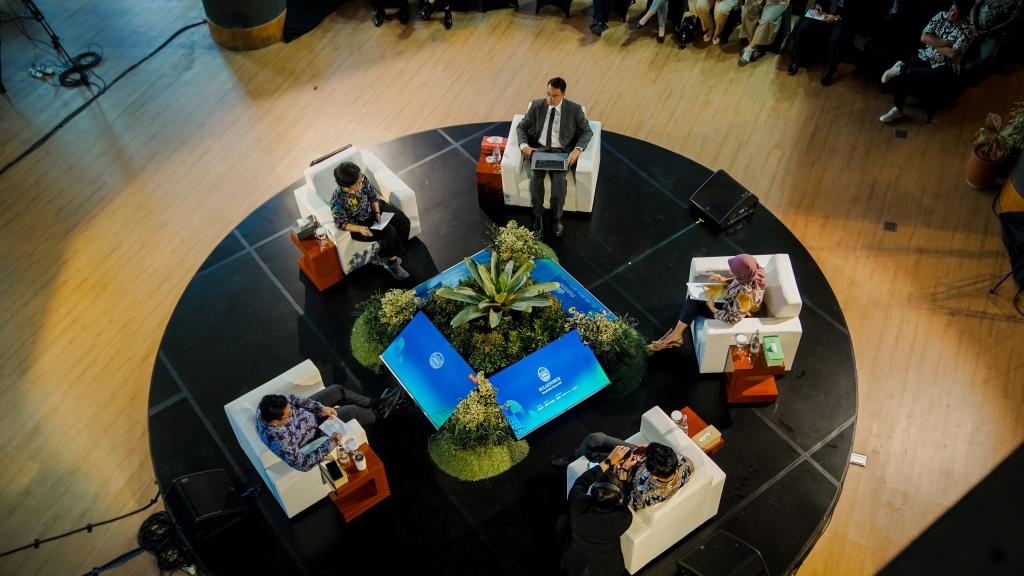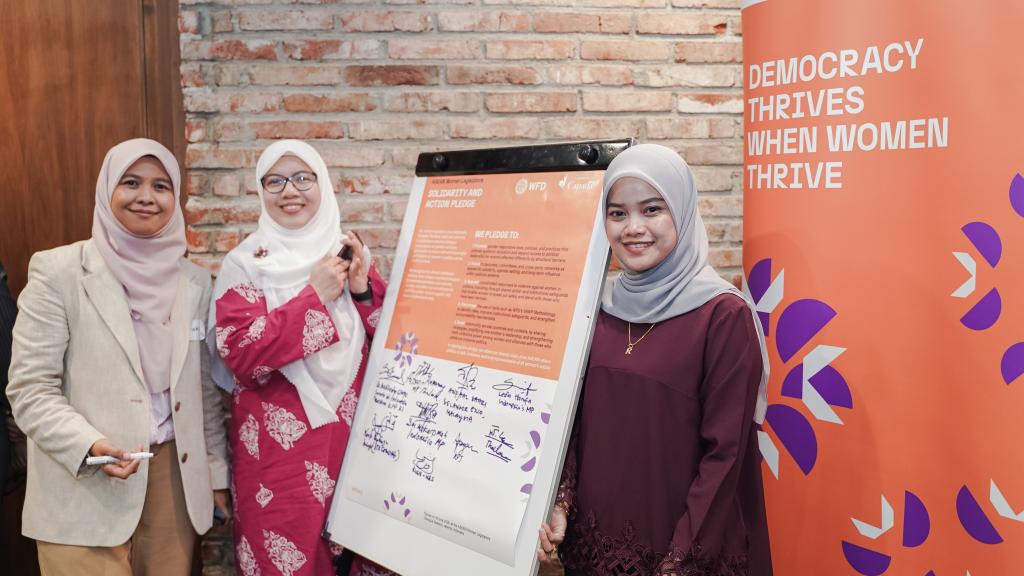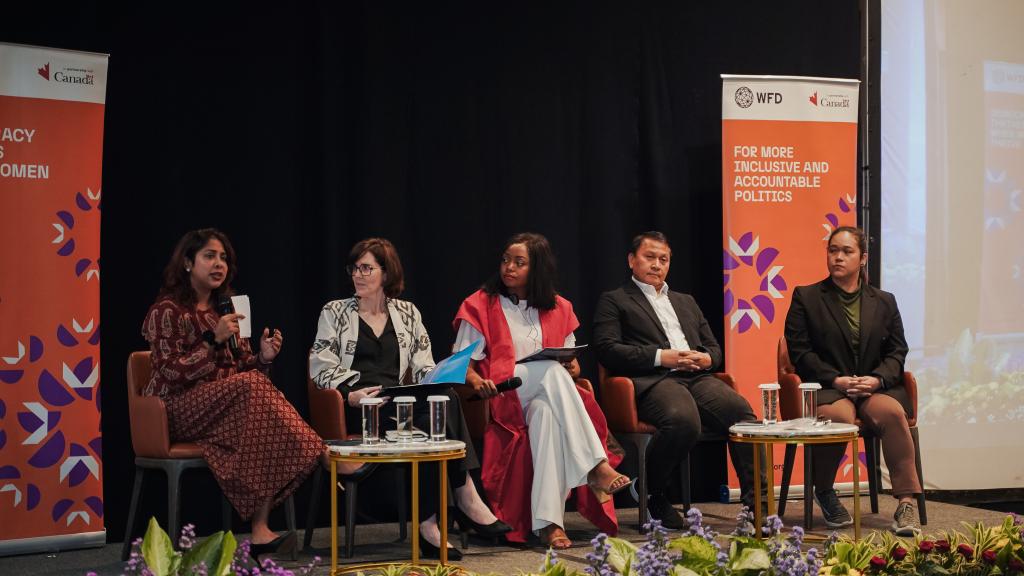From observation to action: standardising the documentation of violence against women in politics
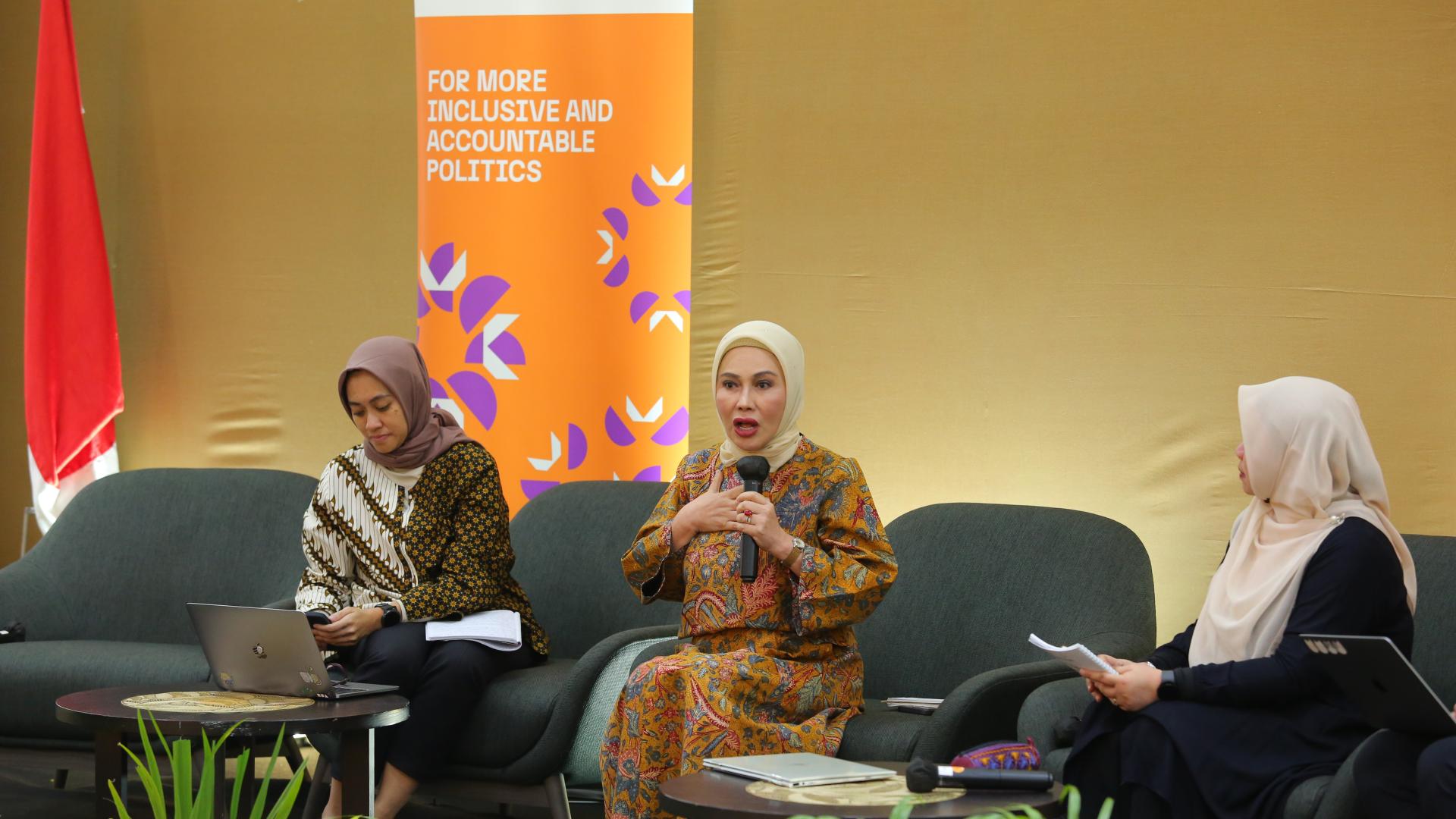
The February 2024 elections marked a pivotal moment in Indonesian politics, with only one party achieving the 30% share of women winning its legislative seats—which has since decreased below that threshold following a series of recalls. However, research conducted by WFD and the Women Research Institute (WRI) found that VAWP has intensified, continuing to hinder women’s full participation in the electoral process. The existing data presents only a fragmented picture of the reality. In recent months, WFD convened a Gender Observatory to begin efforts towards standardising the monitoring and documentation of VAWP in the country.
Previously, several organisations—Perludem, Puskapol UI, Kalyanamitra, SAFEnet, and WRI—along with broader groups, such as the civil society coalition on women’s representation, tracked VAWP independently. The Gender Observatory now provides a platform to streamline these fragmented efforts into a coordinated and strategic push for reform.
Key recommendations for women’s political leadership
In collaboration with the Institute for Advanced Research (IFAR) of Universitas Katolik Atma Jaya, WFD organised a seminar in March 2025 to reflect and evaluate the state of women’s representation in Indonesia. Speakers in this event included the Deputy Minister of Home Affairs, the Chair of the Election Supervisory Body, the Deputy Chair of Legislation Committee of the House of Representatives (DPR RI), and the Chair of the Indonesian Women’s Political Caucus.
The coalition underscored that gender equity should also be reflected in parliamentary committee leadership roles, ensuring women legislators are given proportional representation in key decision-making positions.
During the seminar, the civil society coalition proposed policy reforms to advance gender equity and protect women's political rights, which include:
- Allocating 30% of public funds provided to political parties towards recruiting and training women in politics.
- Amending Indonesia's Electoral Law to create a comprehensive legal framework covering national, provincial, and municipal elections and the governance of electoral bodies into a single legislation.
- Enforcing strict sanctions—including disqualification—for political parties that fail to meet the 30% women’ quota in their ballots with a zipper system.
- Mandating the placement of women candidates at the top position of party ballots in at least 30% of electoral districts.
- Reducing the minimum endorsement requirements by 30% for women running independently for the Senate or Regional Representatives Council (DPD RI).
- Safeguarding recalls mechanism by ensuring that the replacement of an elected woman parliamentarian is another woman from the same electoral district.
- Lowering eligibility requirements by 30% for gubernatorial candidate pairs that comprises at least one woman.
- Mandating the allocation of at least 30% of public funding for political parties to go towards recruiting, training, and supporting women candidates to compete in elections.
- Introducing an equity system where elected women parliamentarians are ensured of at least 30% leadership positions in parliamentary committees, therefore enabling women to actively set policy agendas.
Building the momentum for change
Between October 2024 and March 2025, the Gender Observatory convened over 25 reformers from 15 civil society organisations and think tanks. These meetings facilitated collaboration on issues beyond women’s participation in elections, ranging from the arbitrary replacement of elected women candidates by political parties, lack of awareness of the gendered nature of some forms of political violence, and exclusionary practices entrenched within political party leadership, governance, and hierarchies.
Upon identifying these critical gaps, WFD leveraged the Gender Observatory as a platform to strengthen civil society collaboration, finding common ground and facilitating mutual understanding. This initiative directly addresses the ongoing debates on the future of democratic elections in Indonesia.
Next steps: evidence and action
The Gender Observatory will continue to build on the momentum enabled by these early results, focusing on securing collective commitments from diverse stakeholders to standardise the collection, governance, disclosure, and use of data related to women’s political participation and leadership, including political violence.
At this stage, this process will include the Indonesian Bureau of Statistics, the Ministry of Home Affairs, the Ministry of Women’s Empowerment, the Ministry of National Development Planning, and the National Commission on Violence Against Women in addition to all election management bodies. Through the initiative, civil society organisations have begun to align independent VAWP monitoring efforts and engage state actors responsible to advance the desired institutional reform.
